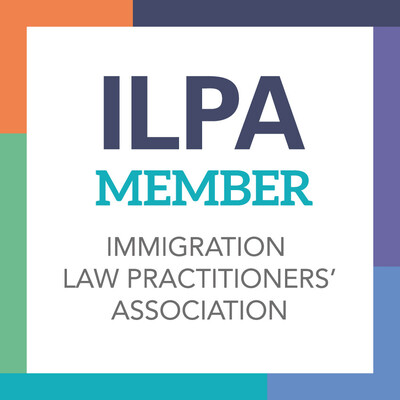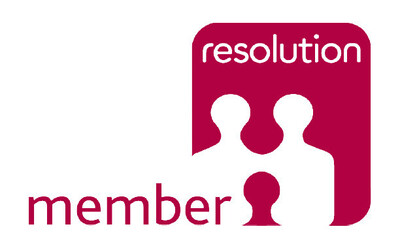Sponsor Licence for Employers
If your organisation wishes to employ skilled workers from outside the UK, it must usually first apply for a sponsor licence. Workers must have a minimum qualification level and a job offer from an employer that has made a successful sponsor licence application before applying to come to or remain in the UK.
SPONSOR LICENCE ELIGIBILITY
For your business to obtain a sponsor licence, the Home Office must be satisfied that:
- Your company is a genuine organisation operating lawfully in the UK;
- Your company has HR systems and processes in place to comply with the Home Office sponsorship duties;
- You are honest, dependable and reliable;
- You are capable of carrying out your sponsor duties and evidencing your compliance in an appropriate timeframe and manner;
- You can offer genuine employment that meets the appropriate skill levels and rates of pay.
Trading and operating a business in the UK
Your company must be able to evidence that it is genuine and operating or trading lawfully in the UK. The Home Office deems an organisation to have been operating or trading in the UK from its incorporation date. A minimum of four mandatory documents are required to demonstrate that your company meets this requirement. The exact documents will depend upon your organisation type and the tiers you wish to sponsor migrants.
Presence in the UK
If your organisation does not occupy premises in the UK but operates a virtual business model, it may still apply for a sponsor licence. However, it will need to evidence it meet its sponsor duties and obligations and operates or trades lawfully in the UK. In this case, the Home Office will likely conduct a compliance visit at the Authorising Officer’s address before deciding on the outcome of the application. The Home Office will consider what type of work the sponsored worker(s) will undertake in the UK and where they will be conducting their employment duties. The Home Office will expect to see adequate systems in place for the organisation to comply with its record-keeping obligations.
Compliance systems and obligations
The Home Office will examine your current human resources and recruitment practices to make sure that you can fulfil your sponsor duties. If the Home Office conducts a compliance visit, it will examine each of these areas:
1) Monitoring of employee immigration status and illegal employment prevention;
2) Maintaining migrant contact details;
3) Record keeping and recruitment practices;
4) Migrant tracking and monitoring;
5) General sponsor duties.
Key personnel
The Home Office will assess whether you are honest, dependable and reliable by looking at your history and background, as well as that of the key personnel named on your application and any people involved in the day-to-day running of your business.
Each of the key personnel must:
• Be permanently based in the UK throughout their role.
• Not have any unspent criminal convictions for a relevant immigration offence.
• Be an employee or engaged by the company as an office holder, although there are some exemptions.
Three key personnel roles must be filled as part of an initial sponsor licence application. One person or several different people can perform these roles.
The three roles are:
1. The Authorising Officer (”AO”): The AO must be the most senior person responsible for recruiting all migrant workers and ensuring those sponsor duties are met within the organisation. They are responsible for granting access to the Sponsor Management System (SMS) and ensuring that each SMS user complies with the sponsor requirements. The Home Office will consider and treat the AO as the primary contact point for any compliance visits undertaken. It is strongly advised that the AO is well versed in the sponsor duties and obligations.
2. The Key Contact: The Key Contact acts as the principal liaison between the Home Office and the sponsor. In many cases, this will be a designated legal representative.
3. The Level 1 User: The Level 1 User has full access to the SMS and is responsible for the day-to-day operation of the licence. They can perform various functions, including changing details of the organisation on the licence summary, requesting additional Level 1 or Level 2 Users and applying for and issuing Certificates of Sponsorship. The initial Level 1 User must be an employee, director or partner of the UK organisation.
Once the licence is granted, it is recommended that at least one other Level 1 User is appointed to ensure that there is always someone who can access the SMS in case of absences.
Settled worker employees
Your company must always have a minimum of one employee who is a “settled worker” and can act as a Level 1 User when applying for a sponsor licence. The Level 1 User will be responsible for carrying out the organisation’s day-to-day sponsorship activities using the online Sponsor Management System.
A “Settled worker” must be:
• A British citizen;
• A person with leave to remain (“pre-settled status”) or indefinite leave to remain (“settled status”) granted under Appendix EU (the EU Settlement Scheme);
• A person who is otherwise settled and has Indefinite Leave to Remain in the UK.
Sponsored job roles
Any proposed sponsored role must meet the criteria for sponsorship:
• Meeting the minimum salary threshold for the relevant category.
• The position is a genuine vacancy.
• The job meets the required skill level. The ‘Immigration Rules Appendix Skilled Occupations’ requires appointments at RQF Level 3 or above to qualify for the skilled worker entry route to the UK.
If the role is not likely to qualify for sponsorship, obtaining a sponsor licence is futile unless your company may need to sponsor migrants to perform roles in the future which who be eligible for sponsorship.
Genuine vacancy
There must be a genuine vacancy for the role which the migrant will perform in the UK. Examples of vacancies that the Home Office consider not to be genuine include where:
• The job description is exaggerated to fit within the requirements of the category deliberately.
• The migrant does not have the appropriate skills, qualifications and experience needed to do the job as described.
The Home Office will regularly ask sponsors to provide additional details and evidence about the role to ensure a genuine vacancy exists. They may ask where the role sits on the organisational hierarchy chart and the experience and qualifications required.
Certificates of Sponsorship
You can only sponsor a foreign worker if the job you are employing them for is suitable for sponsorship. The Home Office has published a list of jobs that meet the requirements for sponsorship.
Once you have identified the job, you must ensure that your potential foreign worker has the necessary skills, qualifications or professional accreditations to do this job.
Employee Monitoring
As a Sponsor, you will need to have appropriate systems in place to monitor your sponsored worker. These include:
• monitoring their immigration status
• keeping copies of relevant documentation for each employee, including their passport and right to work information
• tracking and recording your sponsored employees’ attendance
• keeping your sponsored employees’ contact details up-to-date
• reporting to UKVI if there is a problem with your sponsored employee (for example, if they are not complying with the conditions of their sponsored visa).
Reporting Changes
You must inform the Home Office within 20 working days, if your company experiences any significant changes, such as it:
• stops trading or becomes insolvent
• substantially changes the nature of its business
• becomes involved in a merger or takeover
You must also tell Home Office if your business details change, like your address or allocated roles. You can report these changes via the SMS.
Sponsor Licence validity
Your Sponsor Licence will be valid for four years, after which you can apply to extend it. Once you obtain your Sponsor Licence, your organisation will be placed on the List of Registered Sponsors regularly updated by the Home Office. You will receive a licence rating and permission to assign Certificates of Sponsorship (CoS) to enable you to employ eligible skilled workers.
WORKER LICENCE TYPES
Depending on the vacancies on offer, you may apply for two types of licence:
A Worker Licence
A ‘Worker’ licence will enable you to employ (long-term or permanent) skilled workers under the following categories:
• Skilled Worker – the role must meet the Home Office’s job suitability requirements;
• Intra-company visas – this is for multinational companies which need to transfer established employees or graduate trainees to the UK;
• Minister of Religion – for people coming to work for a religious organisation in the UK;
• Sportsperson – for elite sportspeople and coaches.
Temporary Worker Licence
If you wish to temporarily employ foreign workers, you must obtain a Temporary Worker licence to sponsor them. You can sponsor temporary workers under the following categories:
• Creative Worker – to work in the creative industry. For example, as an entertainer or artist (up to 2 years);
• Charity Worker – for unpaid workers at a charity (up to 1 year);
• Religious Worker – for those working in a religious order or organisation (2 years);
• Government Authorised Exchange – work experience (1 year), research projects or training. For example, practical medical or scientific training (2 years) to enable a short-term exchange of knowledge;
• International Agreement – where the worker is coming to do a job covered by international law. For example, employees of overseas governments;
• Seasonal Worker – for those coming to the UK to work in ‘edible horticulture’ for up to 6 months. For example, picking fruit and vegetables.
You can also use the Seasonal Worker visa to sponsor:
• pork butchery workers for up to 6 months
• poultry production workers - until 31 December 2021
• HGV drivers involved in food transportation - until 28 February 2022
Most immigration applications have strict factual and evidential requirements that are not necessarily straightforward to comprehend or satisfy. LS Legal Solicitors are well versed and highly experienced in providing advice and assistance on immigration applications. We appreciate that many of the requirements may seem overly complex and onerous. However, we guarantee to make your experience as smooth and stress-free as possible.
For the quickest response, please WhatsApp or call us on +44 (0) 75 3595 9450. You can also contact us via email at info@LSLegaLUK.com or use the contact form to discuss your requirements further or arrange an appointment with one of our experts.



